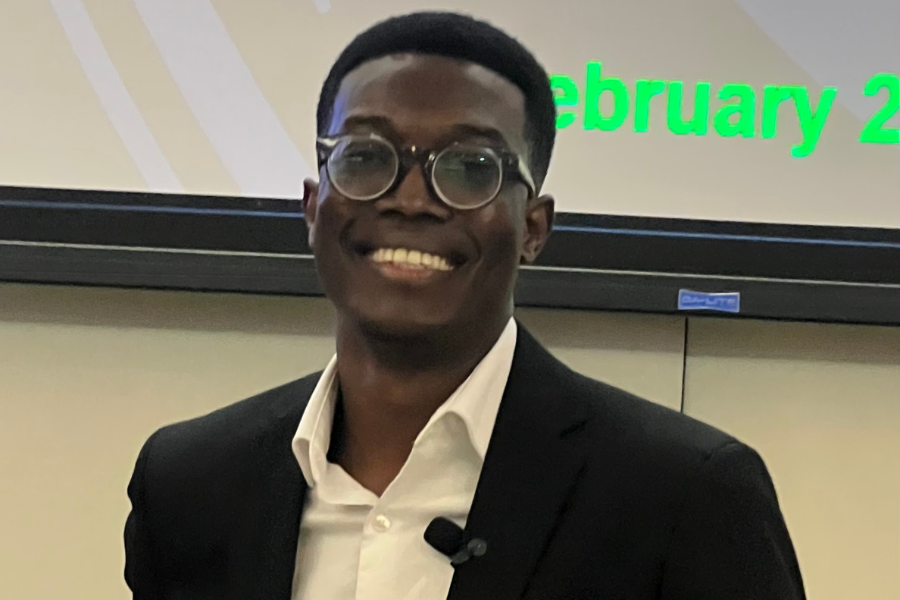Ifeoluwa Oyekunle

”Advance knowledge, impactful contribution, drive change”
College: Arts and Sciences
Degree Program: Materials Chemistry
Degree: Doctoral
Why FSU?
From my undergraduate years, I have remained driven by a deep curiosity to explore the underlying principles behind scientific phenomena—how chemistry governs molecular behavior, influences biological and environmental processes, and enables the design of novel functional materials. This intellectual drive, combined with a passion for addressing real-world challenges through science, motivated me to pursue a graduate degree. I chose Florida State University not only for its strong commitment to scientific innovation, but also for its unique access to world-class research infrastructure, particularly the National High Magnetic Field Laboratory. As the largest and highest-powered magnet lab in the world, it offers unparalleled opportunities for cutting-edge materials research, enabling deeper understanding of structure–property relationships at the atomic and molecular levels. The university’s collaborative research culture, cutting-edge facilities, and distinguished faculty provide the ideal environment for me to grow as a scientist and contribute meaningfully to the global shift toward sustainable technologies.
Importance and/or impact of research and work
The rapid growth of the electronics and electric vehicle industry is driving a surge in demand for advanced energy storage technologies. All-solid-state lithium batteries (ASSBs), which utilize nonflammable solid electrolytes, are gaining prominence as next-generation energy storage. Inorganic solid-state electrolytes (SSEs) include oxides, sulfides, and halides. Sulfide-based electrolytes offer high energy density and good contact with lithium metal but suffer from poor moisture and air stability, leading to decomposition and toxic gas release. Oxide-based electrolytes are chemically stable with lithium but are rigid and difficult to process, with high-temperature synthesis raising environmental and cost concerns. Consequently, my research explores the mixed-anion approach to combine the strengths of different anions, thereby overcoming the limitations of each class – such as oxide conductivity, sulfide moisture sensitivity, and halide processing challenges—resulting in improved ionic conductivity, stability, and mechanical properties. At the Hu’s Lab, I conceptualize and develop novel mixed-anion solid electrolytes. The synthesized materials are characterized using electrochemical impedance spectroscopy (EIS), X-ray diffraction techniques (XRD), Raman spectroscopy, and nuclear magnetic resonance (NMR) spectroscopy. Once the desired properties are achieved, the electrochemical performance of the assembled all-solid-state batteries are assessed through a series of rate capability tests, spanning charging/discharging currents under galvanostatic conditions.
Career aspirations
My career goal is to become a materials scientist in a dynamic, innovation-driven environment where I can apply my interdisciplinary expertise in chemistry and materials science to develop next-generation functional materials. My long-term ambition is to drive the translation of cutting-edge scientific discoveries into sustainable technologies that address global challenges.
Advice for anyone considering graduate school
My advice to anyone considering graduate school is to ensure there is a genuine interest in the research area being considered. It is also important to seek out a mentor who challenges your thinking, believes in your potential, supports you, and helps shape your academic path. Effective communication, teamwork, and humility are as crucial as intellect. Embrace feedback and stay committed.
